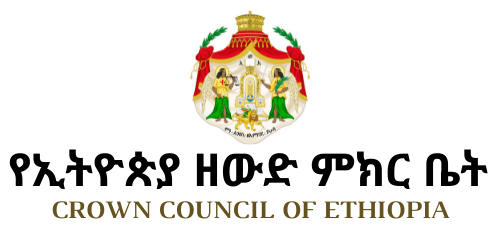A Statement by His Imperial Highness Prince Ermias Sahle-Selassie Haile-Selassie, President of the Crown Council of Ethiopia
On behalf of the Crown Council of Ethiopia, I extend my deepest and heartfelt condolences to all the families who, because of the violence of recent days in our homeland, have had to bury their relatives and loved ones. We grieve with those who must continue mourning as the brutal murderers have yet to be arrested. We are disheartened to know so many innocent lives are being taken and our beloved country has now declared war with itself.
We have read, seen, and heard the cries of our people who have been targeted for their ethnic identity and religion; for being Amhara, Oromo, Tigrayan, Wolayta, Afar, or any other ethnic group has been Ethiopia’s cultural magnificence. Identifying as Christian Orthodox, Catholic, Pentecostal, Muslim, or Animist is what makes Ethiopia’s historical majesty. Many seem to have forgotten our history, as Ethiopia was the country which preserved Islam with pride and dignity. The First Hijrah was the first migration of Prophet Muhammed followers as they fled from the persecution and took refuge in the Christian Kingdom of Aksum, today’s Ethiopia and Eritrea.
It is important to remember that Ethiopia was also formed on the communal harmony of nations striving together to protect their combined territory and peoples, all the while toiling to develop a diverse society, greater with each generation of Ethiopians.
We often refer to the great Battle of Adwa as the African Victory. This is because history was never gracious to Africa, and Ethiopia was the only country able to fight its enemies and gain victory. Adwa was a reminder of the power of solidarity and unity. Remembering Atse Menelik’s vision to bring warriors such as Ras Alula, Ras Darge Sahle Selassie, Ras Tekle Haymanot, Ras Mikael, Fitawrari Habte Giorgis Dinagde, Ras Yohannas Mengesha; with Dejeazmach Balcha Aba Nefso by his side to win a war. It was a war which was a testimony to the leadership by all in this noble endeavor. These dignified leaders from the many great Peoples of Ethiopia saw the importance of unity. They did not dwell on their separate ethnicities or religious beliefs. The vision of each was one of a collective freedom and the agreement to have one overarching government body to preserve territorial diversity, dignity, and union.








